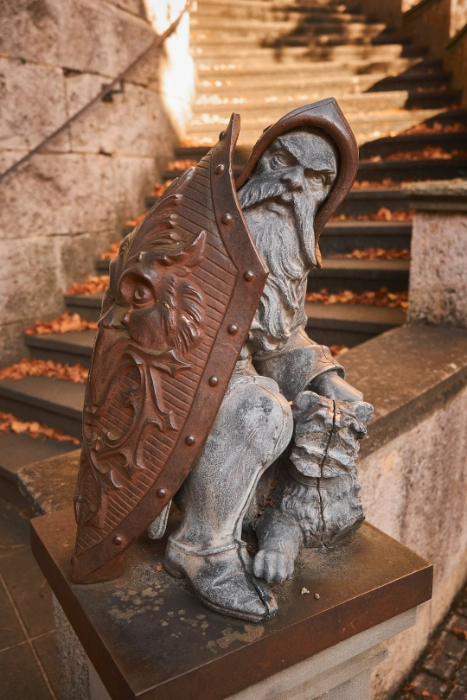King Omri, disobedience continues

King Omri of Israel, whose reign is recorded in 1 Kings 16:21–28, was a pivotal figure in the history of the Northern Kingdom. His rule marked a significant political and cultural turning point, Omri's reign exemplifies the consequences of pursuing worldly success while neglecting covenantal faithfulness to God.
Omri ascended to the throne during a period of political turmoil following the brief reign of Zimri, who had assassinated King Elah. After Zimri's death, a power struggle ensued between Omri and Tibni, with Omri ultimately prevailing after a prolonged civil war (1 Kings 16:21-22). This internal conflict reflects the instability of Israel’s monarchy, a recurring consequence of the nation's rebellion against God’s covenant. This emphasizes that such disorder arises from humanity’s sinful nature and failure to submit to God’s sovereign rule.
Omri's reign is notable for its political and economic advancements. He established the city of Samaria as Israel's capital, strategically located to enhance trade and defense (1 Kings 16:24). Samaria became a symbol of Israel’s power and prosperity, underscoring Omri’s competence as a ruler. Historical records, such as the Mesha Stele, confirm Omri’s prominence, portraying him as a formidable king whose influence extended beyond Israel.
Omri’s achievements demonstrate that God, in His sovereignty, can allow even unfaithful leaders to accomplish significant feats for His purposes (Proverbs 21:1). However, these successes are ultimately hollow when divorced from obedience to God’s law.
Despite his political accomplishments, Scripture unequivocally condemns Omri for perpetuating idolatry and leading Israel further away from God. The biblical account states that Omri “did evil in the eyes of the Lord and did worse than all who were before him” (1 Kings 16:25-26). He continued the sins of Jeroboam, maintaining the worship of golden calves and promoting syncretism with pagan religions. This unfaithfulness not only provoked God’s wrath but also set a destructive precedent for his successors, including his infamous son, Ahab.
This underscores the gravity of Omri’s spiritual failures, interpreting them as evidence of humanity’s total depravity. His reign illustrates how worldly power and success cannot substitute for righteousness and covenant fidelity. Omri's failure to lead Israel in true worship highlights the need for a faithful King who would guide His people in obedience to God—a role ultimately fulfilled in Jesus Christ.
Omri’s legacy had lasting implications for Israel. His political stability and alliances, such as those with Tyre, laid the groundwork for the prosperity seen during Ahab’s reign. However, these accomplishments were overshadowed by the spiritual corruption that permeated his dynasty. Samaria, the capital he built, would later become synonymous with idolatry and God’s judgment.
In conclusion, Omri’s reign serves as a cautionary tale of the dangers of prioritizing worldly success over covenantal faithfulness. His story points to the need for Christ, the perfect King, whose reign is characterized by righteousness and obedience to God’s will (Isaiah 9:6-7). While Omri’s achievements may have brought temporary stability, they pale in comparison to the eternal kingdom established by Christ, who redeems His people and leads them in true worship.